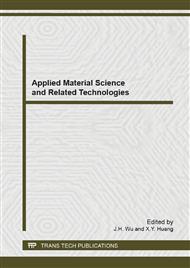p.568
p.574
p.578
p.582
p.586
p.590
p.594
p.598
p.602
Research on Household Intelligent Robot Based on Artificial Psychology
Abstract:
Household robots are not only the trends of robot, but also are the dreams of human beings for the past many years. With the development of Artificial Intelligence (AI) and Information Technology (IT), there are more and more home robots, from the attitude toward the robots by human, we can find two problems. First, humanoid psychological appearance of the household robot has a great and complex impact on human sense, exactly like human being, or nothing like, will make human feel different feelings. Second, people think household robots are simple machines, when household robot could say, hear, and even chat with people, how human emotions will change This paper focuses on the relationship between human being and household robot, especially emotional discussion. We analyzes the architecture and appearance of household robot, find emotion theories and choose Artificial Psychology as its guide, which could make robot have humanoid emotion, in this process we avoid the uncanny valley, which makes people accept robot. Finally we use the head instead of the whole robot based on the existing conditions, and verify the robot in the digital home to achieve the goal of harmonious human-computer interaction.
Info:
Periodical:
Pages:
586-589
DOI:
Citation:
Online since:
February 2014
Authors:
Keywords:
Price:
Сopyright:
© 2014 Trans Tech Publications Ltd. All Rights Reserved
Share:
Citation:


